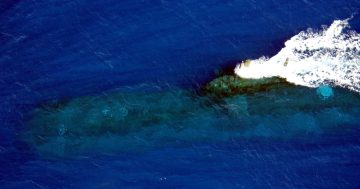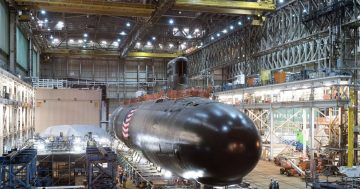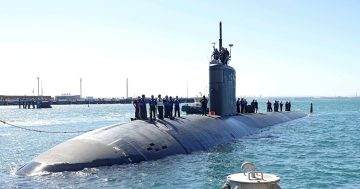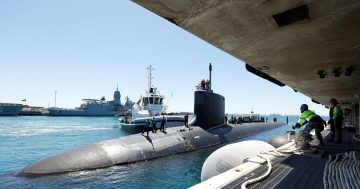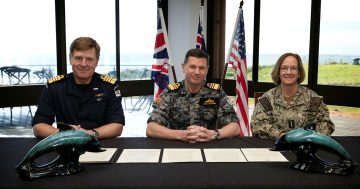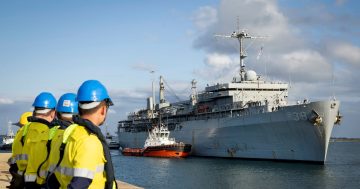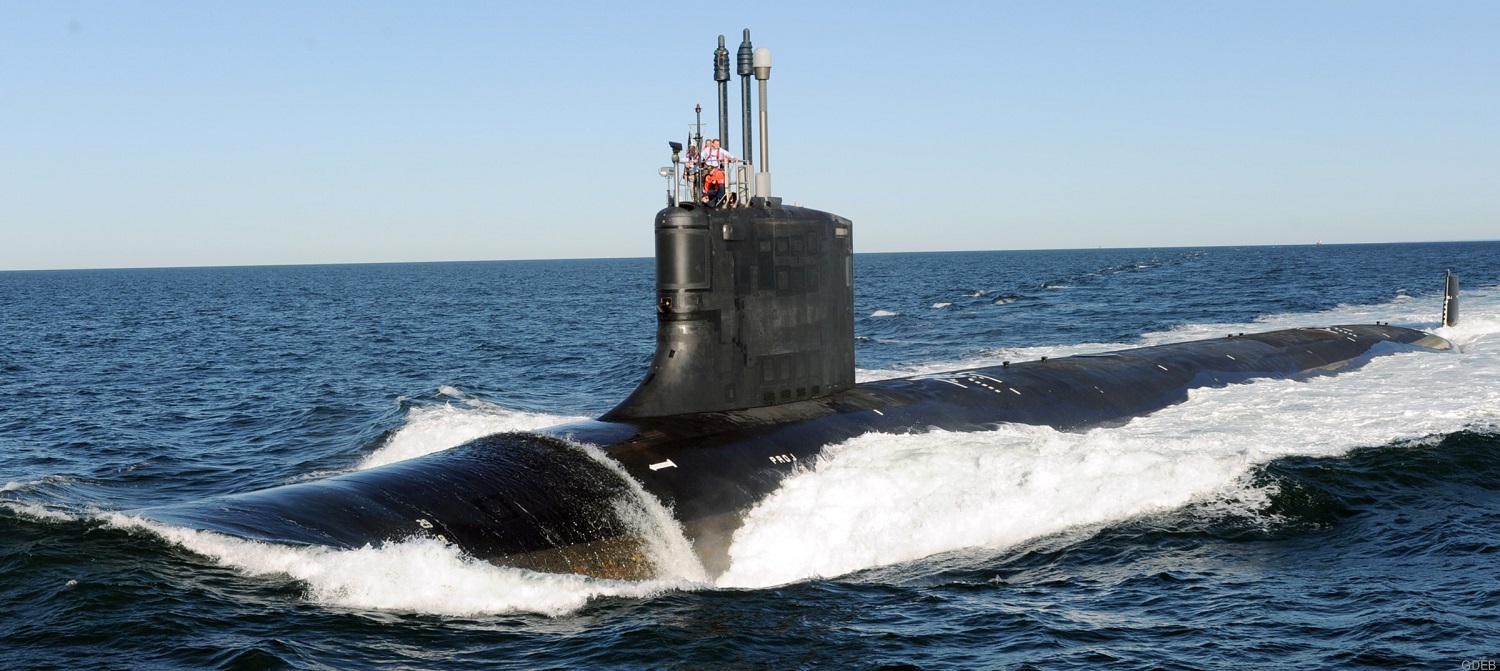
The Pentagon’s review into AUKUS has thrown doubt as to whether the US Navy will be able to deliver at least three Virginia-class SSNs to Australia from 2032. Photo: US Navy.
Donald Trump’s ‘America First’ policies seem to have started filtering down to the AUKUS Pillar 1 agreement for the US to provide the Royal Australian Navy (RAN) with at least three Virginia-class nuclear-powered submarines from 2032.
With the US defence industry still unable to meet the requirements for the US Navy’s submarine force let alone those of Australia, the Pentagon is reviewing the AUKUS agreement to share the nuclear technology with Australia.
The original Pillar 1 agreement saw Congressional authorisation of the transfer of nuclear technology to Australia, the induction of RAN and Australian industry personnel into US Navy and Royal Navy submarine training and sustainment workforces, and the establishment of the Submarine Rotational Force West (SRF-West) to support increased deployment of US Navy and Royal Navy submarines to the Indo-Pacific.
It also provided for the transfer of between three and five Virginia-class SSNs to the RAN from US Navy stocks before production of newer SSN-A submarines could commence in Australia from 2038, and payments of US$3 billion by Australia to support the ramp up of the US industrial base to build the additional Virginia-class boats.
The move comes despite assurances from US Defense Secretary Pete Hegseth to his Australian counterpart Richard Marles in Singapore two weeks ago that the AUKUS agreement was on track, although few specifics were publicly revealed.
During a forum at the Shangri-la Dialogue in Singapore on 31 May after he had several meetings with Mr Hegseth, Mr Marles said the agreement was continuing to proceed.
“AUKUS in respect of it providing Australia with an ability to acquire a nuclear powered submarine capability is continuing to proceed and continuing to proceed on course,” he said.
“The United Kingdom, the United States and Australia all share the vision and the belief that Australia having a capable, long range submarine capability is important in terms of contributing to the balance, the stability of the Indo Pacific, ultimately the collective security of the region in which we all live.”
But overnight 11 June, the Financial Times reported a Pentagon spokesperson as saying, “The Department is reviewing AUKUS as part of ensuring that this initiative of the previous administration is aligned with the President’s America First agenda.
“This review will ensure the initiative meets these common sense, America First criteria.”
This morning (12 June), Mr Marles told ABC Radio Melbourne that he remained “very confident” AUKUS Pillar 1 would be delivered and suggested the Pentagon’s review was no different to Australia’s defence strategic review when the Albanese Government first came to office, and the new UK Labour Government’s recent defence review.
“It’s something that it’s perfectly natural for an incoming administration to do … It’s exactly what we did,” he said. “There is a plan here. We are sticking to it, and we’re going to deliver it.”
But time is of the essence if the US is going to be able to meet Australia’s 2032 timeframe to take delivery of its first Virginia. Any delay to this will create a massive capability gap, one that is already widening with delays to and a scaling back of plans for the current Collins-class’s life of type extension (LOTE).
Defense News reported that, in his March confirmation hearings, the Pentagon’s head of policy Elbridge Colby expressed reservations about AUKUS, especially the US’s ongoing difficulties in increasing its own SSN production rates, let alone those for Australia.
“If we can produce the attack submarines in sufficient number and sufficient speed, then great,” he said.
“But if we can’t, that becomes a very difficult problem because we don’t want our servicemen and women to be in a weaker position.
“It should be the policy of the United States Government to do everything we can to make this work,” he added.
It is also unclear whether the Pentagon’s review will flow down to the various Pillar 2 capabilities outlined in the AUKUS agreement, including autonomous systems, AI, quantum, space capabilities, undersea warfare, and hypersonics.
Democrats in the US Senate who are supporters of the AUKUS construct criticised the review for casting doubt on the future of the agreement.
“If this administration is serious about countering the threat from China, like it has said as recently as this morning (11 June), then it will work expeditiously with our partners in Australia and the UK to strengthen this agreement and ensure we are taking steps to further boost our submarine industrial base,” said Senator Tim Kaine from Virgina.
“Anything less would play directly into China’s hand.”


